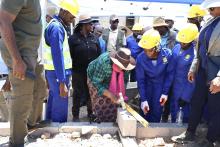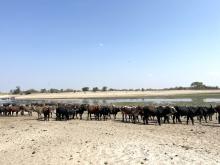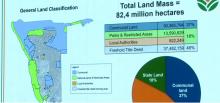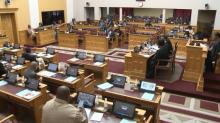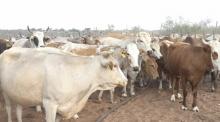PM Ngurare inaugurates N$500 million Gaidip Oasis agricultural project
Breadcrumb
Prime Minister Elijah Ngurare has inaugurated the N$500 million Gaidip Oasis Agricultural Project near the banks of the Orange River in the ||Kharas Region.
Dr. Ngurare inaugurated the project on behalf of President Netumbo Nandi Ndaitwah.







